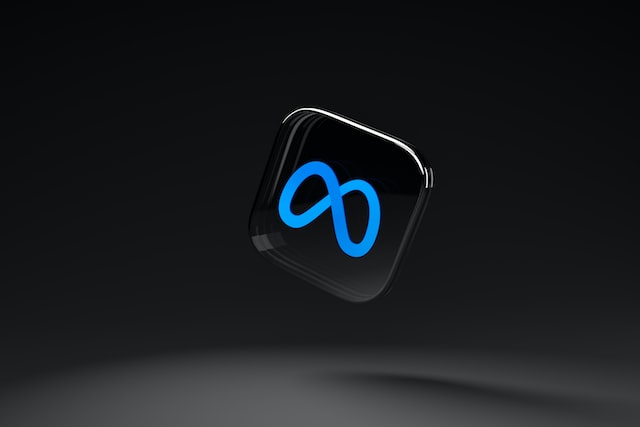Meta’s mission is to give people the power to build community and bring the world closer together. All of its products, including the apps, share the vision of helping to bring the metaverse to life.
Meta builds technology that helps people connect, find communities, and grow businesses. Meta’s products enable people to connect and share with friends and family through mobile devices, personal computers, virtual reality (VR) headsets, wearables, and in-home devices.
Meta also helps people discover and learn about what is going on in the world around them, enables people to share their opinions, ideas, photos and videos, and other activities with audiences ranging from their closest family members and friends to the public at large, and stay connected everywhere by accessing its products. As of Dec ’23, Meta had 3.07 billion Monthly Active Users (MAUs).
Meta is moving beyond 2D screens toward immersive experiences like augmented and virtual reality to help build the metaverse, the next social technology evolution. In this strategy story, we will have a deeper look at the business model of Meta (Facebook) and understand how does it make money.
Business Model of Meta (Facebook)
Products
Family of Apps
- Facebook: Facebook helps give people the power to build community and bring the world closer together. It’s a place for people to share life moments, discuss what’s happening, nurture and build relationships, discover and connect to interests, and create economic opportunity. They can do this through News Feed, Stories, Groups, Watch, Marketplace, Reels, Dating, and more.
- Instagram: Instagram brings people closer to the people and things they love. Instagram Feed, Stories, Reels, Video, Live, Shops, and messaging are places where people and creators can express themselves, push culture forward through photos, video, and private messaging, and connect with and shop from their favorite businesses.
- Messenger: Messenger is a simple yet powerful messaging application for connecting with friends, family, groups, and businesses across platforms and devices through chat, audio, and video calls and Rooms.
- WhatsApp: WhatsApp is a simple, reliable, and secure messaging application that people and businesses worldwide use to communicate and transact privately.
Reality Labs
- Reality Labs. Reality Labs’ augmented and virtual reality products help people feel connected anytime, anywhere. Meta Quest lets people defy distance with cutting-edge VR hardware, software, and content. Facebook Portal video calling devices help friends and families stay connected and share the moments that matter in meaningful ways.
Technology
Meta’s product development philosophy centers on continuous innovation in creating and improving products that are social by design, which means that Meta’s products are designed to place people and their social interactions at the core of the product experience.
As Meta’s user base grows, as engagement with products like video and VR increases, and as Meta deepens its investment in new technologies like artificial intelligence, Meta’s computing needs continue to expand.
Sales and Operations
Most of Meta’s marketers use its self-service ad platform to launch and manage their advertising campaigns. Meta also has a global sales force focused on attracting and retaining advertisers and providing support to them throughout the marketing cycle stages, from pre-purchase decision-making to real-time optimizations to post-campaign analytics.
How does Facebook (Meta) make money: Revenue Model
Meta made $133 billion in 2023. Meta’s business model is organized into two segments: Family of Apps (FoA) and Reality Labs (RL). For FoA, Meta substantially generates all of its revenue from selling advertising placements to marketers. Marketers purchase ads that can appear in multiple places, including on Facebook, Instagram, Messenger, and third-party applications and websites. RL generates revenue from consumer hardware products, software, and content sales.
Meta’s annual worldwide ARPP in 2023, which represents the sum of quarterly ARPP during such period, was $34.72, an increase of 9% from 2022.
Family of Apps (FoA)
Advertising: Meta generates substantially all of its revenue from advertising. Meta’s advertising revenue is generated by displaying ad products on Facebook, Instagram, Messenger, and third-party affiliated websites or mobile applications.
Marketers pay for ad products directly or through their relationships with advertising agencies or resellers based on the number of impressions delivered or the number of actions, such as clicks, taken by users. Ads on Meta’s platforms enable marketers to reach people based on age, gender, location, interests, and behaviors.
Advertising revenue in 2023 increased $18.31 billion, or 16%, compared to 2022 due to an increase in the number of ads delivered, partially offset by a decrease in the average price per ad. In 2023, the number of ads delivered increased by 28%, as compared with an 18% increase in 2022 as ads impressions grew in all regions during 2023, especially in Asia-Pacific and Rest of World. The increase in the ads delivered during 2023 was driven by increases in the number and frequency of ads displayed across our products and an increase in users. In 2023, the average price per ad decreased by 9%, as compared with a
decrease of 16% in 2022.
Other revenue: Other revenue consists of net fees Meta receives from developers using its Payments infrastructure and revenue from various other sources.
Reality Labs (RL)
RL revenue is generated from delivering consumer hardware products like Meta Quest, Facebook Portal, wearables, and related software and content. RL revenue in 2023 decreased $263 million, or 12%, compared to 2022. The decrease in RL revenue was mostly driven by a net decrease in the volume of Meta Quest sales.

